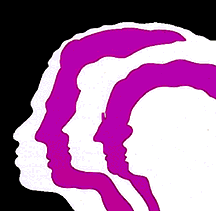Oct. 5
Exercise for the Elderly: Have We Discovered the Fountain of Youth?
By the year 2030, the fastest growing segment of our population will be those over 85 years of age. Seventy million Americans will be over the age of 65. The aging process itself is a complex series of events that are affected by a variety of factors, including lifestyle, chronic illness, and genetics. Dr. Lynn Gerber, chief of the Rehabilitation Medicine Department at the Warren G. Magnuson Clinical Center, will explain how research is showing that exercise holds an important key to staying healthy and active as we age.
Medicine for the Public 1999 lecture series
New therapies. Innovations in
diagnostic procedures. How today's research will affect tomorrow's
medicine.
Physician-scientists working at the forefront of medical research at the National Institutes of Health will examine these issues during October's Medicine for the Public lecture series sponsored by the NIH Clinical Center.
The lectures, which are free and open to the public, will be presented at 7 p.m. on Tuesdays in the Clinical Center's Masur Auditorium, National Institutes of Health, 9000 Rockville Pike, Building 10, Bethesda, Maryland.
For details on specific topics or speakers slated for the 23rd annual Medicine for the Public lecture series, please call (301) 496-2563.
The Clinical Center
has a new front door now that construction has begun for the
new Clinical Research Center. Maps
and directions
|
For more information about the Clinical Center and its Medicine for the Public lecture series, contact CC Communications (OCCC@nih.gov), (301) 496-2563. National Institutes
of Health, Warren Grant Magnuson Clinical Center, Bethesda, Maryland
20892. 7/99 Past lectures:
2005 | 2004 |
2003 | 2002 |
2001 | 2000 |
1999 | 1998 |
1997
|
Oct. 12
New Directions for Organ and Tissue Transplantation
Dr. Allan D. Kirk, chief of the Transplantation Section of the National Institute of Diabetes and Digestive and Kidney Diseases, will explain how diabetes, renal failure, and other end-stage organ diseases can be treated more successfully by immunologic strategies that make the body believe that the transplanted tissues are its own. A surgeon and authority on organ transplantation, Dr. Kirk will explore new methods to prevent the rejection of transplanted organs and tissues, and the development of new drugs or techniques that may improve the success of organ and tissue transplants.
Oct. 19
Blood Transfusion at the Millennium
Blood transfusion has changed dramatically during the last quarter of a century. Many of the early risks--hepatitis, incompatibility, and limited storage and supply--have been all but eliminated in industrial societies. This is not the case in much of the developing world.
Dr. Harvey G. Klein, chief of the Clinical Center's Department of Transfusion Medicine, will discuss new and interesting challenges that now involve inactivation of infectious agents in blood, production of substitutes for human blood, and collection of novel blood components for the immunotherapy of cancer and infectious agents, and for such promising new approaches as gene therapy.
Oct. 26
Heart Attack: Rapid Diagnosis Using Magnetic Resonance Imaging
When a heart attack is suspected, quick and accurate diagnosis is essential so that treatment can begin immediately. Innovations in imaging technology can significantly speed that process in hard-to-confirm cases.
Dr. Robert S. Balaban, chief of the Laboratory of Cardiac Energetics, in the National Heart, Lung, and Blood Institute, will discuss how scientists are using sophisticated magnetic resonance imaging to detect heart attack and heart disease in emergency-room patients. Dr. Balaban will explore this current research dedicated to rapidly pinpointing heart problems and, ultimately, saving lives.
